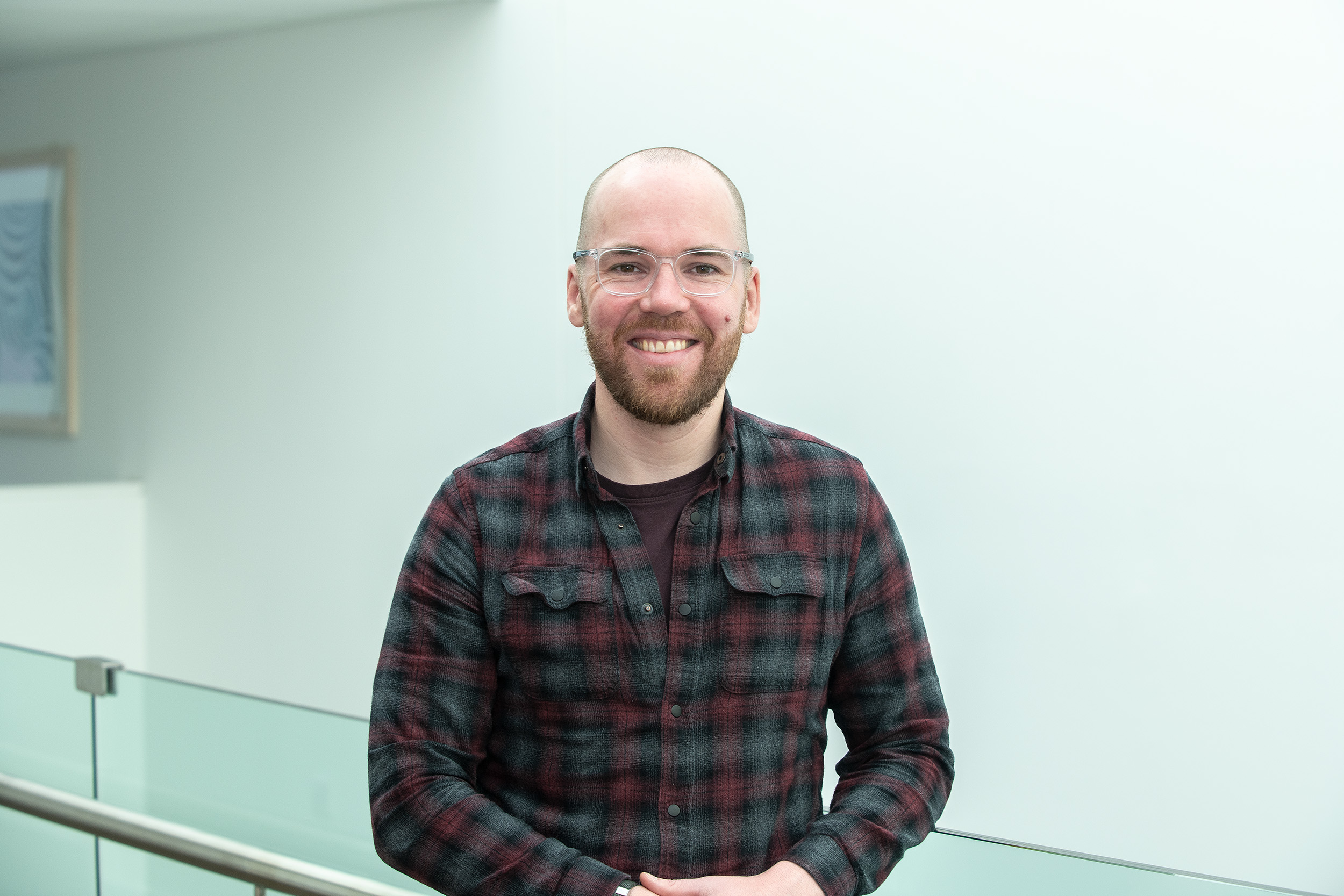Childhood Cancer Awareness Month – an interview with Dr Gerry Brien

“I can’t imagine what it’s like to have a child and be told they have an incurable brain tumour and there’s nothing that can be done about it.”
It’s a stark message but it’s the motivation that led Dr Gerry Brien to work in the field of childhood cancer.
He leads the Chromatin Biochemistry and Epigenetics Laboratory at the Institute of Genetics and Cancer where he uses his expertise in chromatin biology and cancer to better understand childhood cancers and guide the development of better treatments.
“Childhood cancers are rare, which is a good thing, but this rarity means many of these diseases haven’t been studied in detail and we don’t have effective cures or treatments.
“This is what motivates me. In the childhood cancer space, there’s a lot of scope to make discoveries that will have a tangible impact for patients and their families. That’s why I chose to work with childhood cancers, because I felt this is where I could have the most impact.
“There’s hope things can improve quite significantly in the next few decades with concerted and consistent effort and support around these diseases.”
Gerry didn’t set out to work in the cancer field – he has an undergraduate degree in Genetics and Cell Biology from Dublin City University in Ireland and gained his PhD studying chromatin biochemistry and epigenetics in the laboratory of Professor Adrian Bracken at Trinity College Dublin.
“My PhD wasn’t cancer-focused – it was in an area called epigenetics. The term of my PhD overlapped with the time cancer genomes were getting sequenced on a grand scale for the first time.
“One of the things we realised was that a lot of the mutations that cause cancer actually affect genes involved in epigenetics. This is particularly true in childhood cancers where altered epigenetic regulation appears to be the primary cause of disease.”
He did his post-doctoral training in the Memorial Sloan Kettering Cancer Center in New York and the Dana Farber Cancer Institute and Harvard Medical School in Boston.
“I was fortunate to work at two of the top ranked cancer research institutions in the world. I got to work and train with some of the best cancer researchers and doctors out there. A lot of the colleagues and friends I worked with are now themselves group leaders all over the world which creates a worldwide network of people to meet, discuss and share science with on a regular basis.”
He made the move to IGC about 18 months ago, moving here from Trinity College Dublin.
“There is a good infrastructure at the University, particularly at the IGC and CRUK Scotland Centre, geared towards translating the work we’re doing in the labs to clinical practice.
“If the work that’s ongoing in labs has a real hope of being translated into impactful patient studies, we need different groups of people pulling in the same direction – people doing the basic fundamental molecular biology work, alongside people focused and geared towards translational research, and clinicians and oncologists who are motivated to engage with labs and researchers. There are not that many places where all three of these groups of people co-exist. That’s one of the reasons I chose to come here – having all these elements in proximity together is important.”
As a Post Doc in the USA, he did some work on synovial sarcoma – a soft tissue sarcoma that typically affects younger adults and children. The team identified an essential role of a protein called BRD9 in synovial sarcoma tumour growth and worked with drug developers to create new drugs to target BRD9.
Having demonstrated the effectiveness of this in mouse models, two companies developed their own drugs targeting BRD9 which went into clinical trials.
“That encompasses the spectrum of what I want the lab to do – identify new therapeutic targets in childhood diseases, understand the biology of these targets and to develop new drugs, leading to clinical trials in cancer patients.
“It remains to be seen how effective these drugs will be. These things take time. But I’m very proud of this work. It’s motivating to see a direct link between work you do in the lab and getting to a point of clinical trials.”
As a group leader, much of his job is now desk-bound and Gerry is keen to highlight the work of his team members Eimear Lagan, Andrew Malcolm, Anthony Doherty and Charlie Jones.
“The guys in the lab are the people who are doing the work. The biggest part of my job is to guide their work. But it’s them who are making the important discoveries.”
The instigation for this interview is Childhood Cancer Awareness Month which is held every September. For Gerry, these awareness months have an important role to play in educating the public about the need for research – particularly into diseases such as childhood cancer.
“One of the things that’s very clear is the cancers that affect children are completely different from those that affect adults. Not a lot of people know that. It’s important to understand that we’re dealing with a different set of diseases which are going to require a different set of solutions. Historically, because the brain tumours children get look quite similar to those in adults, they have been treated the same way. However, these approaches have not proved to be successful because the tumours kids get are completely different.
“If we want to be able to better treat the patients with these diseases, we need the support. Education is the best thing when it comes to getting that support.”
For more information about how you can support the work of research at the University of Edinburgh, visit: Support our research | The University of Edinburgh



